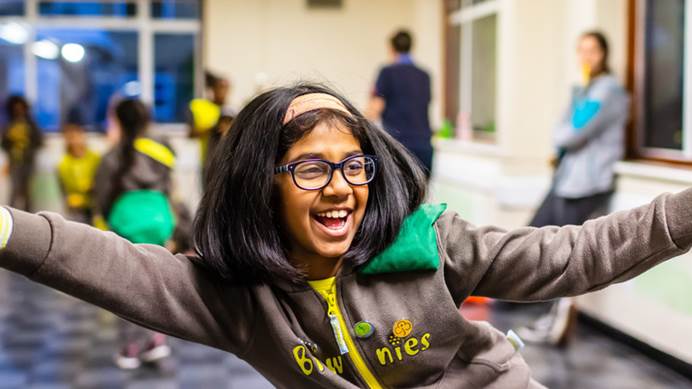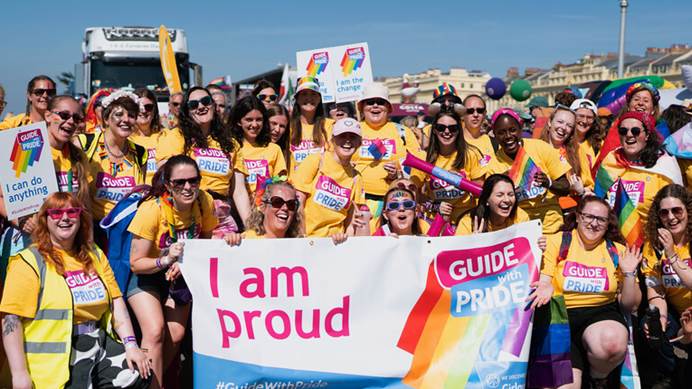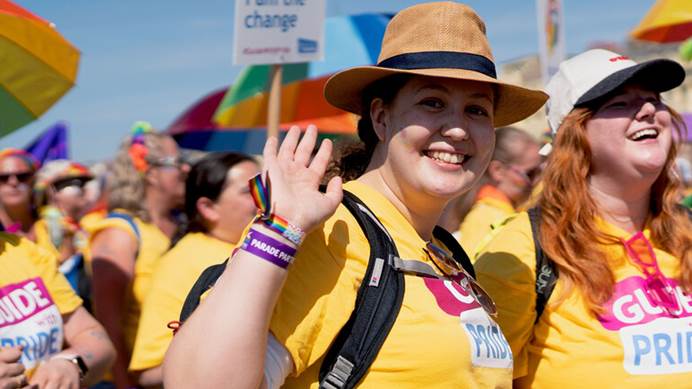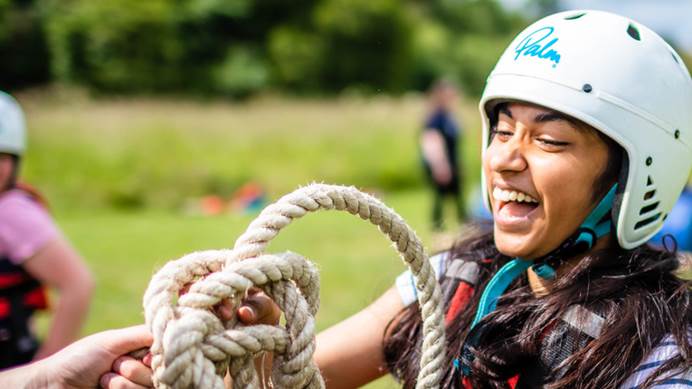How we're making our division more inclusive
Bristol North West’s division commissioner shares how volunteers in their area have been putting our diversity and inclusion strategic plan into action
We all want Girlguiding to be a place where everyone feels welcome and included. But what can you do in your unit, district or division to make this a reality?
Here, Bristol North West’s division commissioner shares how volunteers in their area have been putting our diversity and inclusion strategic plan into action.
'Silence. That was the sound (or rather lack of) when I asked who had heard of or read Girlguiding’s diversity and inclusion plan, which had been released a few weeks earlier. It was one of our termly volunteers’ gatherings held over Zoom and, in between the games and the polls, the agenda also said we’d be discussing the audit and plan. 45 minutes had been allocated, which suddenly felt very ambitious.
'Not to be put off, I had prepared notes summarising the audit and my own reflections. I also shared links in the chat so volunteers could take a look for themselves. More silence, but this time for good reason.
'To get the conversation going I named a number of festivals and celebration events, asking volunteers what regularly made it into the termly programme and what didn’t. Our units regularly marked events they were familiar or comfortable with, often in preference to other celebrations with similar dates. The silence was broken and volunteers began talking about what action they could take – asking someone affiliated with the unit to fact check, approaching local organisations for an awareness session and putting a plea on local social media groups. Festivals and cultural events are so much more than different food and games and our volunteers wanted to reflect that.
'The conversation moved on, reaffirming our confidence in the familiar but eagerness to learn from others’ experiences. We talked about how different units had included transitioning members, members with autism, members in financial difficulty and more. One unit had introduced a “postbox” so discreet queries could be raised and a number of units had made changes to songs to remove the religious element. We signposted existing training but felt we would benefit from more specific training, with access to it at the right time.
'We appreciated the Black History Month programme activities as that gave us confidence to deliver these important sessions and would like Girlguiding to develop more on a wider range of topics. We talked about the different approaches our employers had taken, including compulsory training.
'We then talked about the future and the image we wanted to portray of our division. How most of our units meet in church halls even though we are not a faith-based organisation and how some venues have restricted what our units can do. We thought that while the makeup of our young members could be representative of the areas where we have units, it may not be representative of the division as a whole, and we weren’t sure about our volunteers. We didn’t like the idea of recruitment targets but felt that if we knew what the barriers were, we could organically become more representative. Easier said than done!
'In this discussion and outside of it, it is important to remember that we are volunteers. We are many things, but we are not experts in everything and no one expects us to be. Sometimes our young members will know more than us, but that’s ok! We can all share knowledge and as a collective, we can be experts!
'As for the silence, I needn’t have worried! We ended up going over the allotted time and we will be continuing the conversation at our next gathering in a few weeks’ time.'
This week is National Inclusion Week! If you haven’t done so already, why not set aside time to discuss how you can make your unit, district or division more inclusive with the rest of your volunteer team? If you need help structuring the conversation, our diversity and inclusion reflection worksheet has some prompts that might be useful.



